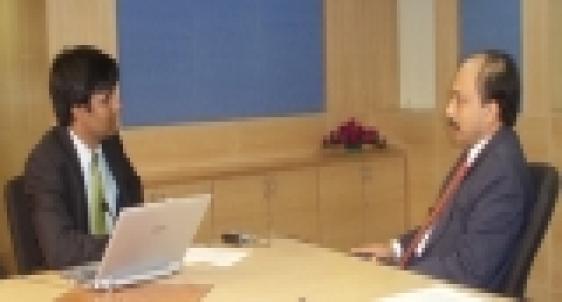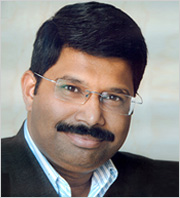
To help our readers, the MBA aspirants, to excel in this final frontier, MBAUniverse.com presents a special series of articles covering the What, Why and How of this personal assessment round. While the first part of this series focused on Group Discussion, this second part focuses on the What, Why and How of the Personal Interview.
We started by asking what is the What and Why of a personal interview.
The Purpose
While the written exam tests the quantitative, reasoning and verbal skills of an applicant, that's not all that a future manager is expected to excel in. In fact, that's just the start! A successful manager should not just be good with his quota of work, but he/ she is expected to contribute as part of a team and lead the team. A personal interview is aimed at knowing a candidate more intimately – assessing the clarity of thinking process, future goals and the 'fit' with the B-school.
Delhi headquartered Career Launcher expert says, "Essentially interview is all about meeting and understanding a candidate and assessing how well he/she fits into a role."
Says Jaya Desai of Mumbai based IMS Learning Resources, "The endpoint of the post test elimination process is the personal interview. It is a direct, face-to-face conversation between the panelist/s and the MBA aspirant. It aims to assess the skills, attitude and personality of the aspirant."
Personal Interview can also turn out to be an opportunity to 'sell' yourself. Opines Mr Subhasish Mitra, VP (KRG) of PT Education, "While intimidating for some MBA-hopefuls, the personal interview represents a prime opportunity. Interviews allow you the chance to not only put a face and personality to the name and credentials on your application file, but also to express your academic, personal, and professional accomplishments, experiences, and intentions."
What does it test?
So what does the personal interview process aim to test? Dr JK Mitra, Dean, Faculty of Management Studies, throws some light. "Personal Interview process might begin with the 'views' expressed during the 'extempore round' (part of process at FMS Delhi) or through a free-wheeling discussion around one's bio-data given in the application form. A few 'knowledge-dipstick' questions on one's basic academic background might also be fielded to assess the depth and accuracy of existing knowledge. A few basic General Knowledge questions may also be asked. FMS also give importance to consistent academic performance as it is indicative of academic discipline and ethos one is required to have to survive in the campus."
According to experts, the Personal Interview stresses on following areas:
• Goal Clarity
• Knowledge
• Communication Skills
• Personality traits
Goal Clarity:
Why do want to do an MBA? How does it fit into your career goals? What do you wish to do after your MBA? These are some hard questions that you will have to answer almost invariably in all Interviews. These questions search the 'inner motivations' of a candidate, and there are no 'right answers'. The only way to answer these questions is to introspect: what excites and motivates you; what makes you perform your best; what would you really like to do in your life, and how do you genuinely see an MBA helping. Tough questions, but answering them honestly is critical for your success!
"Yes, 'Why MBA?' is the most important question that MBA aspirants need to answer. There is no "good answer". The answer needs to be your answer. In other words, you need to think deeply, introspect and find out what it is that really drives you, that really sends a shiver of excitement down your spine when you think of achieving it. It is only this excitement and this drive that can convince the interview panel about your answer rather than any 'manufactured' answer by any faculty," says expert from Career Launcher.
Adds Mr Mitra of PT Education, "Why do you think now is the right time to pursue an MBA?; How will you fit into our program? And How will you do after you graduate? are the key questions for every MBA aspirants to answer convincingly. Interviewers are looking for responses incorporating specific examples from your academic, personal, and professional experiences. Further, they want to know the reasons behind your major life decisions."
So put on your thinking cap, do some soul searching and then jot down the answers to 'what's your goal' questions.
Domain Knowledge
Given that a good MBA is a demanding programme, B-schools would like to know how you will be able to cope up with the academics and the extra-curricular 24 x 7 demands of your new campus. They are also keen to assess how you have utilized the earlier learning opportunities.
"Be prepared to discuss different specialty areas in business and their responsibilities. Interviewers will also expect you to discuss current issues in business, including the economy, taxation, foreign competition, the role of technology and ethical challenges in the field," says Mr Mitra of PT Education.
Interestingly, it is not just about knowledge and answering the questions but also 'leading' the interview panel. Says expert from Career Launcher, "Anything you say opens the doors to new lines of questioning and discussion, so make sure you know where you are leading the interview. So be careful about the gates you open, and be very sure you have in-depth knowledge about whatever you mention. For e.g. if you say you have an avid interest in Badminton, be ready for questions pertaining to Prakash Padukone, Deepika Padukone, plastic shuttles v/s feather shuttles, Saina Nehwal etc. It is advisable to brush up 2-3 subjects from your graduation thoroughly if you are a student fresh out of college. Also, contextual knowledge of the environment around you as well as "general knowledge" comes quite handy."
Jaya Desai of IMS Learning says, "Brush up on your area of specialization/ subjects at graduation. Account for breaks, if any. Take pains to know about the company you work for; your place in the scheme of things and your contribution. Since 'Extracurricular' would comprise activities other than academics and work life, list those activities, preferably recent, that you have participated in or initiated. Be clear about what you do in your leisure hours. Preparation for general awareness questions is an ongoing exercise."
Communication Skills
Your speaking and listening skills become very important than the oft tested reading and writing skills. As simple as it may sound, good communication strategy is quite simple. Listen to the question keenly to understand it well, and then offer a precise answer. If you don't know the answer, no bluffing the panel please! The experts are too experienced to notice this and can get switched off.
Says Career Launcher Expert, "While speaking, the biggest sin you can commit is beating around the bush and being too verbose. Remember, panel can easily interpret these "tactics" on your part to be lack of clarity or a deliberate attempt to obfuscate your lack of knowledge. Also, while answering questions, please remember it is not a quiz and you can actually pause and collect your thoughts before answering, if required."
Prep Strategy?
To be honest, it is not possible to 'prepare' for an interview in a few weeks. Planning for an interview should ideally be a process that should begin as soon as you make up your mind to pursue management education. However, you should use the few weeks and months before the interview to revisit and update your knowledge base, and crystallize your reasoning and thinking process on your career and life goals.
Says Nishant, a first year student of prestigious IIM Bangalore, "Reading newspapers and keeping updated with all the major happenings does help a lot. Revising the concepts, atleast from courses one liked or did well in, from undergrad in required. Attend mock GD sessions and giving 2-3 mock interviews. Importantly, preparing for GD/PI sessions is a good time to reflect and introspect on what are one's career goals and the reasons why one is opting for management career, and one should make use of this opportunity."
FAQs
So now that you are all set with the strategies for doing well in your interview, lets look at a few Frequently Asked Questions, shared by Career Launcher. Remember, these are only to help you prepare and don't expect them to be repeated!
1. Describe yourself.
2. Questions on social service, hobbies (cricket), commercialization of cricket were asked.
3. The recent book that you have read.
4. Question on favourite subject followed by 'What is the difference between an economist's and a CA's interpretation of Fixed cost and Variable cost'; 'What are quick assets and liabilities?' and 'Draw and explain break even point'
5. Why did you leave your first job? Are you satisfied with your career?
6. Do you want to ask anything from us?
7. How many functions have you organized during your engineering?
8. How will you organize Hasya Kavi Sammelan? Differentiate between the style of Surendra Kumar and Shail Chaturvedi.
9. What is sampling principle? How will you draw a distribution curve? Questions on standard deviation. How will you explain variance?
10. Mention 5 use of eraser!
Remember that while planning and preparation for your GD is important, your thinking process and responses should be 'yours' and yours alone. Any element of 'artificiality' can dampen your chances. Says Dr JK Mitra, "My advice to MBA aspirants is that please don't 'prepare' for an MBA interview. Your best chance will be when you are at your natural self. Most of the 'coached' responses or behaviors actually put us off and jeopardize your chance. It is like 'acting'; it has to be so natural to you that you should not be viewed as 'acting'. Therefore, just approach the GD/PI round as a round that you are going to enjoy to your heart's content," says Dr Mitra.
Click the links below to read the experts article on 'How to prepare for Personal Interview'. The experts are from India's leading MBA test prep institutes including Career Launcher and PT Education.
Career Launcher on How to prepare for Group Discussion
http://mbauniverse.com/admission_2009_coverage.php?id=1763
PT Education on How to prepare for Group Discussion
http://mbauniverse.com/admission_2009_coverage.php?id=1764
This brings us the end of this piece on preparing for Personal Interview. Stay tuned to MBAUniverse.com for more on latest news, updates and expert advice on MBA Admissions 2009.



























